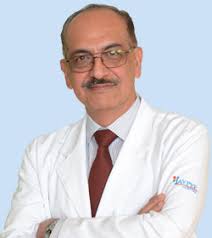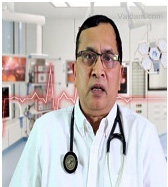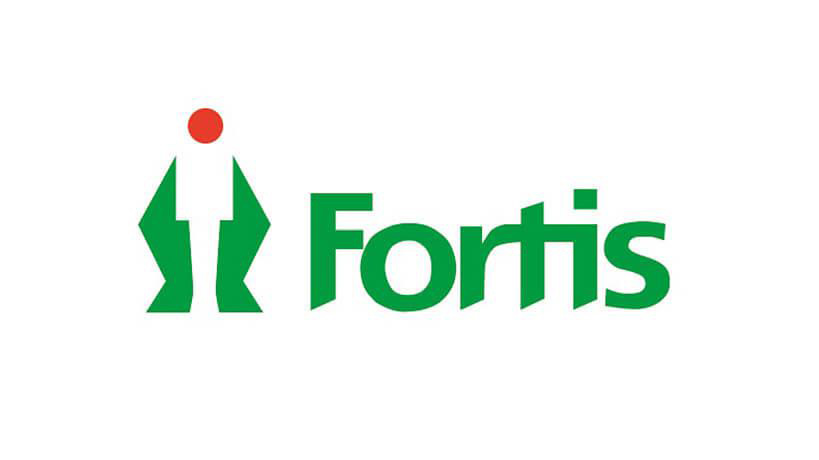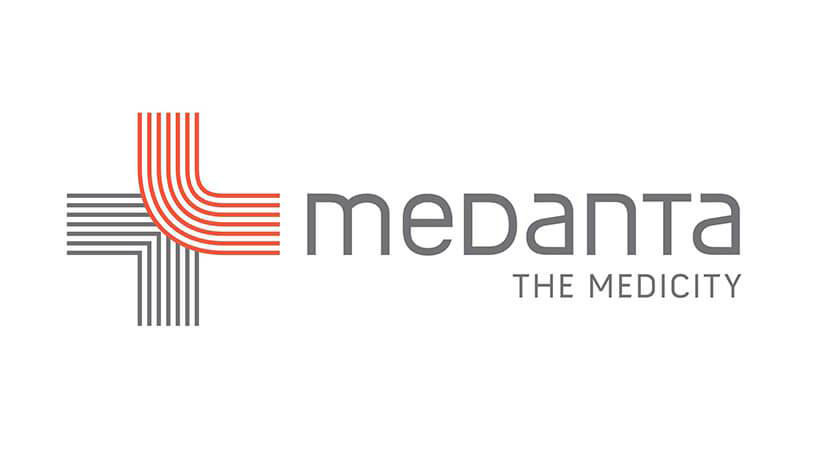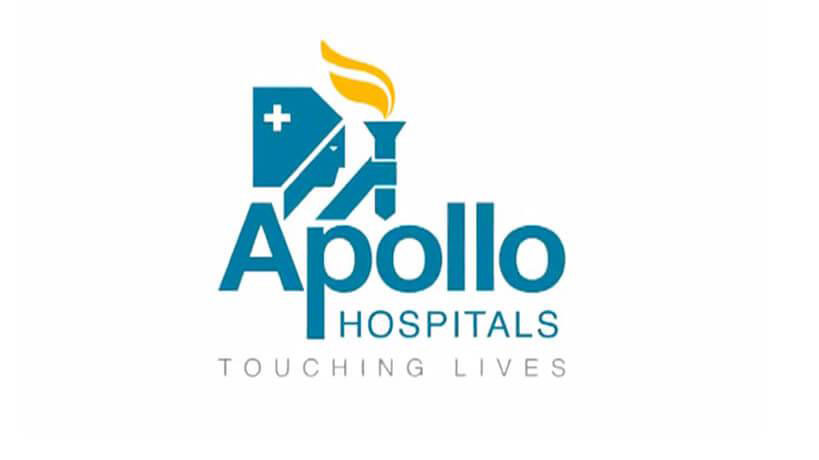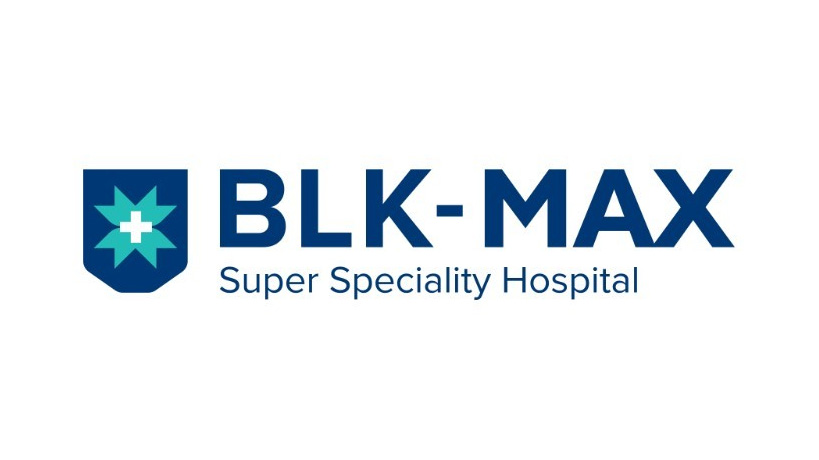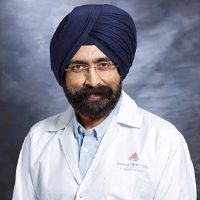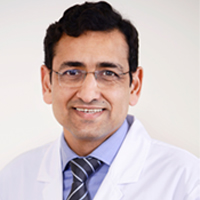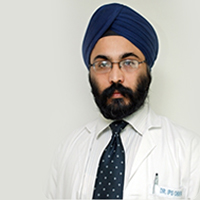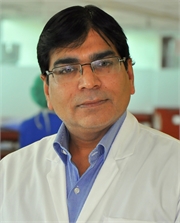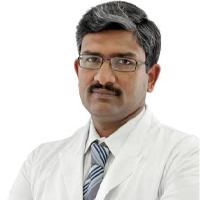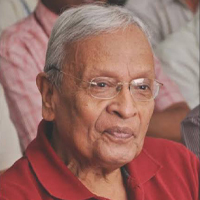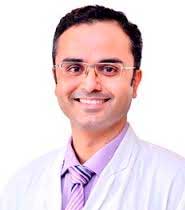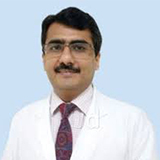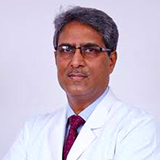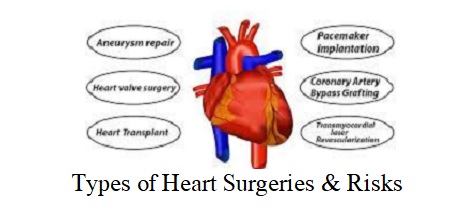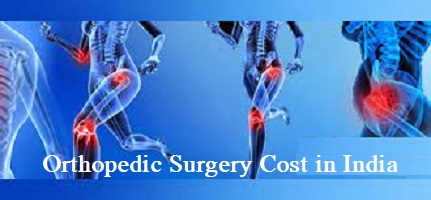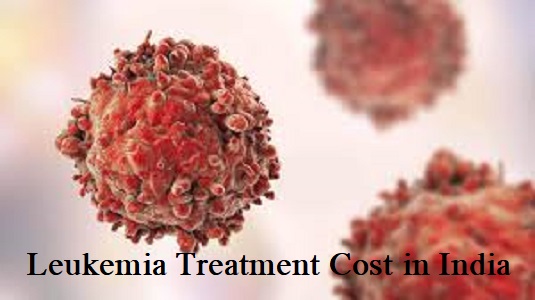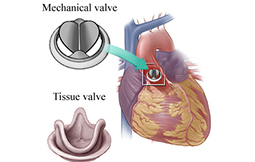
Get Free Treatment Plan From Top Hospital
Attach Medical Report
Heart Valve Repair and Replacement, Surgery, Cost and Recovery Time
Heart valve surgery is a surgical treatment to replace or repair the defective valves in the heart. In this disease, one or more valves in the heart do not work perfectly, disrupting the flow of blood from the heart to the body organs. The heart is a blood-pumping organ having four valves which help the blood flow in a particular direction when a heart beats. Each perfect heart has four valves between the chambers-tricuspid valve, the mitral valve, the aortic valve and the pulmonary valve. The valves are the flaps that have the function of opening and closing with each single heartbeat. In a non-functional and poor valve, the efficiency is improper, resulting in a mix of oxygenated and non-oxygenated blood flowing in the body. These valves can be restored or put back in heart valve surgery by the cardiac surgeon. Depending on the organ health, age and condition of a patient, better surgery is advised by the specialist doctor to improve the heart valves. Along with several other treatments insidious heart surgical treatments, open heart surgery can also be an option for the surgery.
Functions of the four valves in a heart
- The tricuspid valve has the function of accessing less oxygen blood from the atrium to the ventricle on the right side.
- The pulmonary valve has the function sending the same less oxygen blood from the ventricle right to the artery, making it oxygenated in the lungs.
- The Mitral valve has the function enabling the oxygen blood from the lungs to the atrium and then the ventricle on the left.
- The aortic valve now has the function accede oxygen blood to the aorta. And from the ventricle to send the blood across the body and organs.
Symptoms
An individual has an ailment of the heart valve that can disturb the capacity of the heart to drive blood in the body and lungs. Some people have defected since birth, and some develop rigidity, contraction or leakage in the heart valve. If a person develops the symptoms below, they will require surgery to treat the valve disorder.
- Breathing difficulties
- Unconsciousness
- Pain in the chest area
- palpitations
The heart valve disorders that require surgery are:
Indications for Heart Valve Surgery
1.Valve contraction or Stenosis: is the state wherein the heart valve gets narrow.
Mitral valve stenosis
In this condition, the damaged valve fails to open properly, blocking the bloodstream from the left ventricle, the prime chamber in the heart. At the mitral valve contraction, the excessive build-up of fluid causes breathing issues known as pulmonary edema and weariness. The rise of infections like rheumatic fever originates in mitral valve stenosis, and improper attention further leads to severe complications or failure of the heart, Pulmonary hypertension(due to extra pressure), Enlargement of the heart, Atrial fibrillation and formation of blood clots. Usually, the symptoms can be meek for a long time or suddenly emerge at 15-40 of age. However, a patient can develop the symptoms in childhood. The factors that lead to mitral valve stenosis are deposition of calcium, radiation therapies, and congenital and autoimmune diseases.
Symptoms of mitral valve stenosis are:
- Tiredness
- Short breaths during activities or while laying down
- Palpitations
- Inflammation in foot
- Pain in chest
- Oozing blood in cough
- Unconsciousness
- Excessive build-up of fluids in lungs
- Imbalanced heartbeat
Aortic valve stenosis
The disease appears if the aortic valve fails to open completely with a narrow path for the blood flow. Its function is letting the bloodstream pass from the heart to the aorta-the largest artery and throughout the body. Aortic valve disease can be severe or placid. Usually, in solemn conditions, the symptoms become visible, while in a few cases, they remain invisible for years. This disease has severe complications like a failure or heart stroke, inflammation in the foot, and ankles, clotting of blood, irregular heartbeat and blood loss.
Symptoms of aortic valve stenosis are:
- An irregular murmur of the heart
- Angina pain in the chest during activities
- Unconsciousness in commotions
- Short breaths
- Weakness while doing enhanced activities
- Palpitations
- Endocarditis – the severe infection of the heart
- Improper meals, especially amongst children
- Low development of weight, especially among children
- Valve leakage or Regurgitation: is the state of the valve that lets the blood flow backwards.
Many times, medicines are helpful to progress from the complexity of symptoms and better life, but surgery can be an effective option on a long-term basis. Below are the specific surgeries that can carry out from any of the three regurgitation conditions
Mitral valve regurgitation
It is a heart valve disorder wherein the valves amid left chambers fail to close firmly, leaking the blood flow back to the valve. In case of serious leakages, most of the blood does not move forward, resulting in less blood flow to the heart and body. This situation can make the person worn out along with shortening breaths. It can also be called mitral insufficiency or mitral incompetence.
Symptoms of mitral valve regurgitation are:
The symptoms of mitral valve regurgitation are not visible for a long time as it is placid and develops at a low pace. In a few cases, when mitral valve regurgitation develops swiftly, the signs also come into the picture. Weakness in an individual is the usual sign with the other indications.
- Heart murmur
- Abnormal heartbeat
- Short breaths
- Palpitations
- Inflamed ankles or feet
Aortic valve regurgitation
This disorder arises if the aortic valve in the heart cannot firmly close itself. So when the heart pumps blood out to the ventricle on the left side, the blood leaks and flows backwards. These leaks lead to inappropriate blood supply all over the body. That is one reason a patient can have weakness and short breathing issues. The development of aortic valve regurgitation differs; it can grow swiftly or gradually over the years. In case of aortic valve regurgitation is dire, the patient must immediately undergo the necessary treatment, be it a replacement or repairing of the aortic valve. The causes can be a congenital disease in the heart valve, aortic stenosis, endocarditis, rheumatic fever, dissection of the aorta or a painful chest injury, and autoimmune and Marfan disorders.
Symptoms of aortic valve regurgitation are:
Generally, the aortic valve regurgitation grows gradually without showing any indication of the disorder. It is also possible that a person oblivious of their health condition. In a few cases, aortic valve regurgitation can appear all of a sudden due to valve infections.
- The weariness of an increment of activities
- Short breaths
- Murmur of heart
- Abnormal heartbeat
- Unconsciousness
- Pain in the chest while exercising
- Palpitations
- Inflammation in foot and ankles
Tricuspid valve regurgitation
It is a heart valve ailment wherein the valve amid the right ventricle and atrium of the right do not shut firmly. This valve results in backward leakage of blood flow to the right upper chamber of the heart. If a person has meek tricuspid valve regurgitation, they do not show signs and are less likely for treatment. But in critical conditions, tricuspid valve regurgitation illustrates the symptoms and needs surgery or medical treatment. A few cases have tricuspid valve regurgitation by birth, whereas some develop due to medical conditions. The other causes are rheumatic fever, Marfan syndrome, endocarditis, carcinoid disorder, accidentally hurting the chest, pacemaker, radiation therapy and endomyocardial of the heart. The patient should regularly monitor the condition and avoid the complexities of tricuspid valve regurgitation.
Symptoms of tricuspid valve regurgitation are:
The indications of tricuspid valve regurgitation are invisible until it reaches a severity state. It often comes into the picture when a person undergoes a test regarding other health conditions.
- Abnormal heartbeat
- Tiredness
- Short breathing while doing activities
- Puffy abdomen and swelling in neck and leg veins
In a few cases, the patients do not show any indication, and in a meek state, the specialist doctor recommends regular observation of the valve ailments in the heart. Medicines and a healthy daily routine can be helpful in controlling the symptoms.
Occasionally the surgeon advises a valve’s surgical treatment for people with no visible symptoms. And if some additional surgery is necessary, then the treatment will be on the same schedule. The doctor and the patient can have a detailed consultation before surgery and decide if an invasive surgery on the heart will be a good choice.
The common causes in most people are
- Endocarditis:
Endocarditis is an acute swelling of the internal layer in the valves and chambers of the heart and is known as endocardium. It is an infection caused by fungi, bacteria or different germs that enter the blood flow further, attaching them to the injured area of the heart. Endocarditis can develop in people having heart defects, injury in heart valves or artificial/synthetic heart valves
- Rheumatic fever:
Rheumatic fever is a complication of strep throat that can damage the mitral valve, aortic valve, and tricuspid valve. It is capable of causing mitral, tricuspid and aortic valve regurgitation in heart valves. It can also cause mitral valve stenosis and aortic valve stenosis. If a person develops an unusual heart valve because of rheumatic fever, the disease is called rheumatic heart disease.
Types
The specialist doctor advises the patient to undergo particular tests to know and locate the defective valve, its type, and the effect. After the test, the doctor suggests the treatment suitable for the person, which mainly depends on the person’s age, the shape of the heart, way of life and any health conditions of the patient.
The types of surgeries can be
- Open heart or Traditional surgery: In these surgeries, the doctor creates a cut of around 6-8 inches passing through the breastbone.
- Minimally invasive surgery: In this surgeries, the surgeon attempts a small cut of around 3-4 inches and less to approach the heart. It has an endoscopic technique having other names like thoracoscopic and port access surgery. This surgery is also under robotic aid surgery.
- Transcatheter surgery:
- The surgery requires a doctor to put a catheter in a large artery like the femoral artery of the groin area. Such surgeries do not involve an incision on the chest to treat the patient.
The two main types of heart valve surgery are in classification as below:
- Repair Surgery: In this surgery, the defective, non-functional valve gets redressed using the tissues of the patients. The frequent valve that needs repair in most cases is the mitral valve. This surgery applies to the other valves, such as tricuspid or aortic valves, to repair them.
- Replacement Surgery: In this procedure, the non-functional valve draws out and restored with an organic or motorized valve. These substitute valves are compatible, so the immune system will not reject the newly replaced valve.
Heart Valve Repair Procedure
- Quadrangle resection procedure: In this repair method, the surgeon detaches the flap or leaflet to sew it again, to let the valve open and close firmly.
- Commissurotomy repair procedure: The procedure in which combining flaps are cleared-up, allowing a wide opening in the valve.
- Annuloplasty repair procedure: This method is also known as annulus support. It requires a ring prepared with cloth, tissue or metal that has an additional covering in a cloth piece. The artificial ring encircles around a widened annulus by reshaping and is firm. This ring works as a band that supports the valve with collective leaflets.
- Valvuloplasty repair procedure: In this method, a small balloon is sent all the way to the heart employing a vein. Finally, inflate the balloon in the contracted valve to help to broaden its way. After the opening is clear, the remaining air in the balloon is devoid, letting out the balloon and catheter.
- Patch repair procedure: This process needs patches of tissues on the damaged flaps having holes or splits.
- Bicuspid aortic repair procedure: This procedure is mainly for people having two flaps in place of the usual three. The flaps or leaflets allow easy movement of opening and closing of valves after rearrangement.
- TEER or Transcatheter Edge to Edge Repair procedure: In this procedure, a catheter helps to put a fastener on the flaps/leaflets of the Mitral valve, allowing them to close firmly.
Heart Valve Replacement Procedures
In case repairing a valve will not work, the doctor suggests replacement as the option. Furthermore, they will discuss the benefits, complications and risks in all replacement procedures.
- Biological or Organic valve replacement: This procedure requires the replacement of a damaged valve with an organic valve prepared by tissue of a human donor or from animals like cows or pigs. Such valves are short-lived in comparison to motorized valves. However, the patients are free from the compulsion to take blood thinners.
These valves are advisable for individuals who are
- Above the age of 65
- Enduring kidney ailments
- Pregnant women
- Unable to take medicines on a long-term basis
- Work-life requiring heavy physical activities or sports has chances of injury or bleeding.
- Mechanical or Motorized Valve Replacements: This process replaces the non-functional valve with an assembled valve. Such valves are long-lasting though blood-thinning medicines are compulsory for the person throughout their life.
- Ross Procedure replacement: In this procedure, the damaged aortic valve supersedes the working pulmonary valve of the patient. And on the place of the pulmonary valve, a valve of the human heart is affixed. This human valve is from a donor most cases deceased donor comes in utilization.
- TAVR or Transcatheter Aortic valve replacement: This procedure requires a catheter that helps restore the broken valve to place a healthy organic valve. A catheter transmits to the heart through a slit in the person’s chest additional option is from the artery in the groin.
Pre Surgery Procedure
Once a patient is in need of valve surgery, the specialist doctor and the healthcare team will prepare, discuss and schedule the best treatment. Depending on the patient and condition, the doctor advises on the surgical method that is better for life. The individual about to undergo the surgical process must have a detailed discussion with the family regarding the duration of stay at the hospital and needs in recovering period at home. The patient should take necessary things with them like comfortable and loose clothes that can be easily wearable without much movement of hands. Additionally, things to relax like books, a music player and personal care items to the hospital will be helpful. Things like glasses, jewellery, lenses, nail polish and dentures are in an exempt category during the surgery. While shaving the hair on the surgical area is recommended.
The individual should acquaint the doctor and healthcare team to know about any reactions or allergies they have to any medicines. They must have detailed knowledge about the intake of usual medicine with the diet they need to have before the surgery. Usually, eating and drinking from midnight before is not allowed.
The patient undergoes a few tests like an electrocardiogram, C-T scan, chest X-ray, and heart cath with other lab tests.
During the Surgery
The patient will receive anaesthesia by IV through hand or arm to help them fall asleep and not feel any pain for the duration of the procedure. The surgeon will make the minimal possible cut for the surgery through the breastbone. The person will be in a linkage to the bypass heart-lungs machine that will keep working as the organs, heart, and lungs throughout the surgery. When the bypass machine starts the action of pumping blood, the doctor injects medicine to stop the movement of the heart. If the surgery is for replacement, the specialist removes the broken valve to replace it with the mechanical or biological valve. If the valve needs a repair procedure, the surgeon repairs the damaged valve helping the heart to function properly. After the process is complete, the cardiac doctor starts pumping the heart by electric shocks and then disconnects the pumping machine. The surgeon then closes the breastbone with wires and stitches the slit.
In a minimally invasive method, the doctor proceeds by a slight incision in the chest and inserting the miniature devices into the insertion area with the robot system in the operating room. The doctor has complete control of the system and operates using the robotic instruments inside the body. These systems translate the movement of the doctor’s hands inside the body.
The heart valve procedure during surgery can be a traditional, minimally invasive surgery / transcatheter method. The patient is sent to the Intensive Care Unit to monitor the condition.
The minimally invasive method of heart surgery usually has a rapid recovery period, less pain in contrast to the traditional surgery and a short stay in hospital. The best hospitals have experienced surgeons and excellent healthcare teams to operate with minimally invasive surgeries and specialize in robotic assistance surgeries.
Post Procedure of surgery
After the surgery of the heart valves, the patient will be in the ICU for two days or more. In the ICU, the patient will receive medicines and fluid with the help of injected IV. The patient will be in complete rest urine tube helps drain the bladder, and the other duct helps drain the waste blood and fluid in the chest area. The postoperative patient will have to maintain a good supply of oxygen in the body so the health care team can arrange nasal prongs or masks connected to the oxygen cylinders.
The doctors have to monitor the condition and any infectivity arising on the operation spot along with the heart rate, breathing and blood pressure. When the patient is stable, they are shifted to a private room in the hospital for recovery. Depending on the state and method of surgery, the hospital stay is prepending on schedule may be for 7-8 days for the patient. The healthcare team and doctors actively help the patient by administering the agony post-surgical procedure.
Many doctors recommend that a patient should have a walk daily with gradually raising the activity bar. Starting with little walks inside the room and slowly moving outside of the room. Occasionally, add workouts like breathing and coughing in the routine when recovering.
The patient should be careful to notice the incision area and provide extra care watching out for any infection signs. They should take medicines as per prescriptions to recover and manage pain.
Consult the doctor for
- any side effects post-surgery
- pain in the chest or around the incision area
- having a fever can be an infection signal
- fluid retention causing swift weight gain
- depression-may cause delay in the recovery period
Support and coping period
According to the state and the mode of surgery, the doctor advises the patient to follow regular appointments and undergo some tests. These checkups will help the doctor to determine and monitor the condition. Usually, a patient may take around 01 or 02 months to recover. The recovery can be short if a patient undergoes minimal invasive or transcatheter surgery.
The recovering period differs for every patient it depends on
- The valve that was mended or restored
- Health condition prior to surgery
- The procedure used in the surgery
- The success rate of surgery
- Maintenance after the surgical treatment
The patient is weary, and it is better to prevent driving and lift the weight above 15 pounds in the first few weeks following surgery. The doctor will ask the person to have a healthy routine to help the heart in a healthy working condition. It will include the following
- eradicating alcohol and tobacco usage
- Having a healthy and nutritious diet
- Regularly exercising
- To manage or avoid stress
Advantages of Heart Valve Surgery
Heart valve surgery alleviates the symptoms and improves health and expectancy of life.
The probable pros of repairs against replacements in a heart valve are
- Less infections risk
- Temporary use of blood thinners
Heart valve procedures include repair and replacement methods. They can carry out by minimally invasive procedures. These surgeries have a set of benefits; they are
- Likely lesser amount of bleeding
- Low infections risk
- Less days to stay in hospital
- Quick recoveries
Risks and Complications
Generally, all surgeries have certain risks. The healthcare team and the cardiac doctor elucidate to the patient the risks prior to the surgery. When a patient undergoes heart valve surgery, they are at high risk of thrive endocarditis. It can also develop in people who do not repair their faulty valves. The doctor prescribes certain medications to prevent endocarditis in a few dental treatments. However, an individual can take good care and maintain dental hygiene to decrease endocarditis risks. The risks are as follows:
- Failure of the heart
- Excessive bleeding
- A sudden heart attack or stroke
- TIA
- Arrhythmia or abnormal heart rate
- Kidney ailments
- A sudden death
- A possible infection
- Improper functioning of valves distressing the newly placed valves
The other risks include
- The age of the patient
- Previous medicinal conditions
- The procedures involved in a surgery
Survival Rate
According to research, people who are active and workout regularly following the surgical procedure tend to have a low risk of death cases comparatively to people with trivial exercise. The demise rate can be from 00.01% to 10% and entirely depends on individual health and the surgical method. These surgeries have a positive rate of success, nearly 94%-97%.
Cost of the Surgical Treatment in India
The valve replacement of heart surgeries in India is relatively more affordable than in most countries. It is mainly because of the manufacturing and availability of valves in India. With the high-quality treatment and medical facilities available at reasonable rates, India has gained an esteemed reputation as the well-acclaimed hub for treatments across the world. The country is known for heart surgeries such as Bypass, Coronary angioplasty bypass grafting and valve replacement. India is also eminent for its excellence in surgical procedures with remarkable amenities.
The cost of heart valve surgeries for repair and replacement varies from hospital and city. On average, the cost of valve surgery can be around Rs 02, 40,000 – 5, 00,000 and $4000 depending on various issues. Many treatments of the aortic valve and Mitral valve surgeries for replacement or repair may cost 03, 00,000 – 06, 00,000 and $ 6300. Surgery in Tricuspid valve replacement can cost up to $ 6500, and the Double valve replacement costs around $9000. The cost also depends on
- Using of valve type
- Valves replaced in numbers
- Valve replacement plan
- Period to stay in hospital
- The hospital
- Charges of the doctor or surgeon
- Tariff of the hospital room and ICU
- Medicinal Costs
- Costs of tests and Investigative procedures
- Costs of appointments post-surgery
The Doctors for Heart Valve Surgery in India
Ascertain a cardiac doctor specializing in Heart Valve Surgeries to replace or repair is a dire task for foreigners or native patients. In case there is a need for excellent treatment with the best doctor of Heart Valve Repair or Replacement in India. The healthcare professionals are all set to help you. The professionals provide comprehensive details regarding the doctors specializing in treatment. They will endow the enquirer with a listing of the top doctors for Heart Valve Repair or Replacement in India, with contacts, experience, fees, hospitals etc. The hospitals are in different locations in India as Gurgaon, Noida, Delhi, Chennai, Hyderabad, Mumbai etc. with the convenience of booking online appointments.
Below are the best cardiac surgeons available in India:
- Dr Manoj Luthra
Dr Manoj Luthra
Cardiologist
Director, MBBS, MS, DNB
Noida, India
- Dr Manoj Luthra, His specialities include transplants, composite neonatal aneurysms and Bypass surgical treatments.
- He has experience of 26 years and has an association with the esteemed Royal Prince Alfred Hospital of Sydney.
- DrBhaba Nanda Das
Chief Surgeon
MBBS, MS, Cardio-Thoracic Surgeon
New Delhi, India
- Dr B.N.Das is a well-known and prominent surgeon of cardio-thorax & amp in Delhi.
- Having an experience of above 36 years and surgeries of over 20,000 to date is in comradeship with WHO
- He specializes in various Congenital-neonatal anomalies or amp along with CABG for working heart, aortic aneurysm, double valve, mitral valve or aortic valve replacement and Intra repairs of the Heart.
- Dr Ajay Kaul
Cardiologist
MBBS, MS, M.Ch.
New Delhi, India
- Dr Ajay Kaul is a skilled, competent, and renowned name as cardiac surgeon currently working in BLK Super Specialty Hospital.
- He specializes in pediatric and compound congenital heart surgeries with Coronary Bypass and minimally invasive surgeries.
- Holds fellowship from prominent international associations like (Sydney) Royal Prince Alfred Hospital, (Melbourne) Royal Melbourne Children Hospital, Hannover Medical School and Leipzig Cardiac Center(Germany).
- Dr Shipra Srivastava
Cardiologist
Gurgaon, India
- Dr Shipra Srivastava is a senior cardiothoracic practitioner and participant in the successful first transplantation of double lung surgery in Colombo, Sri Lanka.
- She has experience working in around 1000 cases in Nawaloka Hospital PLC in Sri Lanka. Currently working in Medanta The Medicity.
- Dr Srivastava has expertise in beating heart CABG, total arterial revascularizations, valve replacement and repairs, heart port and minimally invasive surgeries.
- Dr Anil Bhan
Cardiologist
MBBS, MS, M.Ch
Gurgoan, India
- Dr Anil Bhan is a reputed and highly skilled cardiac surgeon of India and the hand behind the design and advancement of above 50 instruments of surgery. Also, a team member performed the successful first heart transplant in India (1994).
- He has a record of successful 15,000 surgeries comprising vascular and cardiac procedures with a vast 40 years of experience. Also, the performer of the world’s youngest bypass coronary aneurysm repair (18 months) in 2007
- Dr Bhan has been in association with Putta-Parthi, Whitefield, Max Heart and the Vascular Institute in Saket. Presently the Chairman of Cardiac Surgery at Medanta The Medicity.
- Experienced surgeon of aortic aneurysm, repair and replacement of the valve, minimal invasive, peripheral vascular, heart transplants in end-stage and paediatric surgeries.
- Dr Salil Garg (Col.)
Interventional Cardiologist
MBBS, MD, DNB
New Delhi, India
- Dr Salil Garg (Col.) is a prominent cardiac surgeon now, working in Venkateshwar Hospital as head of cardiology and a senior consultant.
- He has experience executing beyond 5000 surgeries in angioplasties like CTOs, Left Main, Peripheral, and Bifurcations and Carotids also successfully implants above 700 devices like pacemakers, CRTs and ICDs. And has worked in implanting surgeries in already implanted TAVR, Leadless ICD and Micras.
- Dr Salil specializes in AICD, valve replacement, aneurysm repair, CRT, ICD surgeries, ASD, VSD, Coronary and PTC angioplasty. He has practised in urban and rural areas to contribute his vast knowledge.
- Dr Hemant Madan
Cardiologist
M.B.B.S, MD, DM, FRCPE
Gurgaon, India
- Dr Hemant Madan is a prime cardiologist working in Naravana Super speciality Hospital in India and a highly skilful and able surgeon.
- He has enormous experience of 22 years, receiving illustrious accolades such as Vishisht Seva Medal and acclamations from Air Staff Chief twice along with Best Citizen Award. He received a gold medal for medicine MD, and acclamation twice from Commander-in-chief.
- Dr Madan specialises in advanced pacing and management of devices, paediatric cardiac intervention, fetal and paediatric echocardiography, ASD, VSD, PTCA, EPS, aortic balloon valvuloplasty, coronary angiogram, and compound coronary with adult interventions.
- Dr Naresh Trehan
Cardiologist
MBBS, DNB(Cardiology, Cardiothoracic surgery)
New Delhi, India
- Dr Naresh Trehan is among the distinguished and skilled surgeons.
- He has a massive experience of over 52 years in the cardiology field, receiving Padma Shree and Padma Bhushan from the Indian Government.
- Dr Trehan started his practice at New York University and has recognition from the American Board of cardiothoracic surgery and the American Board of surgery.
- . Dr Devananda N.S
Cardiologist
MBBS, MS, MC.h
Bangalore, India
- Dr Devananda N.S is a proficient cardiac surgeon performing surgeries for all ages, from a day old to a ninety-year-old.
- He has a glorious experiance of above 32 years completing over 7000 complex surgeries and still continues to do so.
- Dr Devananda N.S specializes in Complex Valve Surgeries and repairs, CABG on beating heart,Minimally Invasive Surgery in Cardiac, Ventricular Assist Devices, Heart transplantation, Pediatric, Neonatal and Infant cardiac surgery.
- His treatment is precise and noticable for patients just after the surgical procedure.
- . Dr K R Balakrisnan
Cardiologist
MBBS, MS, MC.h
Chennai, India
- Dr K R Balakrisnan is a highly skilled and reputed surgeon for end stage faliuure of heart.
- He has enourmous experience of over 45 years, a pioneer starting first ever heart failure comprehensive management centre in chennai.
- Dr Balakrishnan has broad specialty in cases of Intricate Congenital diseases in Heart,TAPVR repairs, AV canal, Cardiac surgery such as aortic valve replacement Ross Procedure,and heart valve replacements and repairs. .
Top Heart Valve Replacement Hospitals in India
The hospitals have excellent Heart surgeons and a healthcare team to take complete care and provide expert advice to the patients for any medical cases.These hospitals have good Infrastructure,expert healtcare team and comfortable areas helping the patient throught their treaatment procedures. The list below includes pioneer and super-speciality hospitals providing excellent medical facilities and specific supervision of the patients.
- Medanta The Medicity –located in Gurgaon, India
- BLK Super Speciality Hospital- located in New Delhi, India
- Artemis Hospital- located in Gurgaon, India
- Fortis Memorial Research Institute- located in Gurgaon, India
- Indraprastha Apollo Hospitals- located in New Delhi, India
- Aster Medcity- located in Kochi, India
- Gleneagles Global hospital -located in Bangalore,India
- Jindal Sanjeevani Multispeciality Hospital -located in Karnataka.India
- Max Super Specialty Hospital Saket- located in New Delhi, India
- Kokilaben Dhirubhai Ambani Hospital -located in Mumbai,India
- Fortis Escorts Heart Institute- located in New Delhi, India
- SevenHills Hospital- located in Mumbai, India
- Wockhardt hospital -located in Mumbai, India
- Narayana Superspesciality Hospital -located in Bangalore,India
- Apollo Hospital Chennai- located in Chennai, India


If you are planning for Heart Valve Replacement in India and searching for the best Heart Valve Replacement hospital in India then no worries. Al Alfiya Medi Tour is ready for helping you. We have a team of experienced healthcare consultants. They will help you in finding the best hospital for Heart Valve Replacement in India. You can choose any top Heart Valve Replacement hospital in Delhi, Gurgaon, Faridabad, Noida, Chennai, Mumbai, etc. The list of Heart Valve Replacement hospitals in the main cities- Delhi, Mumbai, Gurgaon, Noida, Faridabad, etc. in India with complete details such as hospital address, phone number, city, and best doctors list, etc. is given below. You can book an online appointment with any hospital now.
Book An Appointment for Heart Valve Replacement

Get Free Treatment Plan From Top Hospital
Attach Medical Report

India is one of the top emerging medical tourism countries in the world due to the affordable treatment cost in India for patients from any county around the globe. If you are going for Heart Valve Replacement treatment in India, you should know the Heart Valve Replacement treatment cost in India. The cost of Heart Valve Replacement treatment/surgery in India varies from hospital to hospital, city to city and it also depends on the doctor's fee. If you want to know about the exact Heart Valve Replacement surgery cost in India then contact us anytime 24x7. Our healthcare consultants will help you.

Heart Valve Replacement success rate in India is very excellent. Although success rate depends on various factors such as hospital, doctor, patient, and many more. You can consult online with our healthcare professionals to know the success rate of Heart Valve Replacement in India.
Contact Form
Attach Medical Report
FAQs (FAQs (Frequently Asked Questions))

What is heart valve replacement surgery?
Heart valve replacement is the procedure to replace the damaged or poorly performing valve section of the heart. The surgery is a great solution to any identified heart disease. But it is only preferred when the damage is beyond repair level.
The procedure can be performed to replace one or more of the heart valves with an artificial heart valve or bioprosthesis. When one or more of the valves fail to work correctly, the doctor will advise you to take the medicines or get them repaired. However, when it does not work, then there will be a need for heart valve replacement surgery.
What is robotic heart valve replacement surgery?
Robotic heart valve replacement surgery is a procedure wherein heart surgery is done by making small cuts in the chest. With the use of robot-controlled tools and tiny instruments, surgeons can perform the surgery in a much less invasive method than open heart surgery.
There are multiple benefits of opting for robotic heart valve replacement surgery. There will be smaller incisions, meaning the patient can heal faster and return to regular life quickly. However, it is the healthcare provider who will consider the condition of the patient and then determine if the heart valve replacement surgery will be the best course of action.
What are the types of heart valve replacement surgery?
Heart valve surgery is an option for people with a valve beyond repair. The replacement can improve symptoms and quality of life to a great level. But, there are different types of surgery.
- Biological valves
Bio-prosthetic valves or biological walls comprise pig, cow, or human tissue. In general, there will not be any difference between any type of biological walls in terms of durability. However, they might have some mechanical parts to provide better support to the valve, which makes it easier to put it in the right place.
- Homograft valves
A homograft valve will be from a donor after they have died. Generally, it replaces the diseased aortic valve in young adults or children. It is performed when the section has completely destroyed an erotic valve in adults.
- Mechanical valves
This type of replacement valve is made up of carbon or metal. They are designed to work just like the original walls. Bileaflet is the most common type of valve used during replacement surgery. The mechanical valves are known to last for a longer time.
How much time will it take for heart valve replacement surgery in India?
During the heart valve replacement, surgery helps replace the damaged heart valve with a better one. Commonly known as open heart surgery, the replacement surgery will be a major operation that will last for around 2 hours or even longer. It will vary depending on the complexity of the surgery and the method used for replacement. Adding to it is about six months of wait time for getting a heart valve replacement surgery. So book the appointment as soon as possible.
Who can get heart valve replacement surgery in India?
Getting a heart valve replacement surgery in India is possible for anyone who fits in any one of these criteria.
- The patient must have acquired heart valve diseases like infection or calcification of the valves.
- The patient must have congenital heart valve diseases like leaking valves.
- The patient needs to have rheumatic valve disease, angina, or tumor.
- The patient must have enlarged heart muscles, hypertension, or an opening of the annulus of the valve.
What is the heart valve replacement surgery success rate in India?
India has now become a major hub for heart valve replacement surgery. The availability of top-class doctors, high-class infrastructure, and medical facilities have made it easier to get the surgery done by expert specialists. With the availability of it all, the heart valve replacement surgery success rate in India is now between 94% for aortic wall replacement while it is 91% for mitral valve replacement. However, results will vary depending on the patient’s overall health condition and age.
What is the heart valve replacement surgery cost in India?
Heart valve replacement surgery cost in India varies based on a lot of factors. The average cost can be around INR 2,90,000 to INR 5,75,000 but to get a clear idea about the final cost. It is crucial to consult the doctor and know about all the deciding factors, which can vary between the medical team, hospital, patient-dependent factors, and a lot more.
What is robotic surgery cost in India?
Robotic heart valve surgery has received quite a huge popularity because of the precession and the faster recovery. Thus, it is mostly preferred in complicated cases. But you must know the robotic surgery cost in India will start from INR 2,97,000 and can go a lot higher. However, robotic costs in India will vary depending on the hospital quality and the type of transplant used during the procedure.
What is TAVR surgery cost in India?
If compared to the developed nations, TAVR surgery cost in India will be around INR 3 lakhs to INR 5 lakhs. It will vary depending on the diagnosis and the patient’s condition, along with all the available facilities. Adding to it is the medication cost, hospitalization cost, diagnosis, doctor experience, and hospital and post-surgery expenses, which will all increase the final cost.
What is MVR surgery cost in India?
On average, MVR surgery cost in India is INR 2lakhs to INR 7lakhs. However, it will depend entirely on the hospital charges, the complexity of the case, and the surgeon’s experience.
What are the top 10 best heart valve replacement hospitals in India?
Finding the best heart valve replacement hospitals in India is not tough. The infrastructure and the hospitals in the country have increased tremendously. Adding to it is the higher success rate. So here, check out the top heart valve replacement hospitals in India that will offer quality care and treatment.
- Fortis Escorts Heart Institute, New Delhi
- Asian Heart Institute, Mumbai
- Indraprastha Apollo Hospital, New Delhi
- Medanta The Medicity, Gurugram
- Apollo Hospital, Bannerghatta Road, Bangalore
- Artemis Hospital, Gurugram
- BLK-Max Super Speciality Hospital, New Delhi
- Max Super Speciality Hospital, New Delhi
- Manipal Hospital Old Airport Road, Bangalore
- Apollo Hospital Greams Road, Chennai
What are the top 10 best heart valve replacement surgeons in India?
India, with experienced specialists and quality hospitals, has made it to the list of the best places to get heart valve replacement surgery. Thus, finding the best heart valve replacement surgeons in India is not that tough. Check out the list of the top heart valve replacement surgery in India you can consider to get the treatment done with the best care and comfort.
- Z S Meharwal- Fortis Escort Heart Institute Delhi
- Ajay Kaul- Fortis Hospital, Noida
- Yugal Mishra- Manipal Hospital, Dwarka, New Delhi
- Naresh Trehan- Medanta Hospital Gurgaon
- Anil Bhan- Medanta Hospital Gurgaon
- Bhaba Nanda Das- Apollo Hospital Delhi
- Devananda N.S- Manipal Hospital Bangalore
- Ganeshakrishnan Iyer- Aster CMI Hospital Bangalore
- K R Balakrishnan- Fortis Malar Hospital Chennai
- Suresh Joshi- Wockhardt Hospital Mumbai
How can I apply or get or book an appointment for heart valve replacement surgery in India?
Getting heart valve replacement surgery in India will be easy when you already have a specialist taking care of your case. If not, you need to research the available hospitals and the best surgeons in the country.
Once finalized, you need to apply for heart valve replacement surgery in India. For this, you need to meet the eligibility criteria. Now you need to visit Alafiyamedtour.com and call us or email us for appointment. You will get the required information about the surgery and an appointment date fixed to meet the specialist.
Make sure you book an appointment for heart valve replacement surgery in India as soon as you start identifying the issues or your doctor diagnoses the concern.
Top Doctors & Surgeons in India
Why Choose Us

Personalized Care
24x7 Supports
Top NABH and JCI accredited Hospitals
Free Cost Estimation & Medical Opinion from Specialist
Get Free Tele/Video Consultation
Visa and Traveling Assistance
Post-surgery with Assistance in Follow-ups

